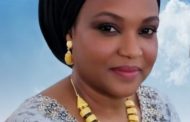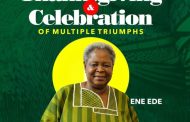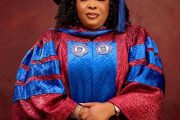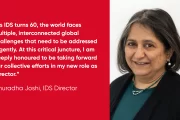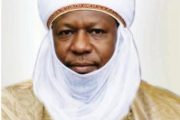If we follow what the Most Reverend Dr Emmanuel Chukwuma said at the burial of Dr Alex Ekwueme, Nigeria’s former Vice-President, then the age 60 – 65 is not such a big deal anymore. In the Archbishop’s preaching, the 70 years set in the Psalms is not really the age to die. That is only for retirement. The age to die, according to him, is 120 years. 70 years is for retirement. At 80, you get your visa. The ticket comes at 90 and it is followed by the boarding pass at 100 while 120 is for departure. From the same source that the video of his preaching came also came a video of some American women who are past 100 years and were recollecting the magic of ageing gracefully. Their video containing their narratives coincided but confirmed the archbishop’s delineation of the progression to death. The way science is developing, it would not be surprising if at his next outing, Archbishop Chukwuma extends the departure age to 150 years.

Mallam Y Z Ya’u of CITAD and another member of the club of 60+
In the context of such possibility, all the prominent Nigerians who have celebrated, are celebrating or will soon be hitting the age 60 should note they are just half way through. There is still a long way to go, all things being equal.
There is a second and even more serious, political reason to ask that bracket to rethink 60. That generational bracket, (60+) is still owning Nigeria a collective political statement they haven’t made relative to the advantages they enjoy and in the context of the challenge of remaking Nigeria. They have done well for themselves but they have not made a collective or generational statement in terms of coalescing into a block for Nigeria. Yet, that is what they promised by the signals they sent very early in their lives.
If we must mention specific names, the list of those who just clocked 60 and above would include Kole Shettima, Kayode Fayemis,(although Fayemi is not really qualified here because he is just 55), Festus Okoye, Y. Z Y’au, Yima Sen, Okey Ibeanu, Jibrin Ibrahim, Abdulkadir Isah, Nasir el-Rufais, (if he stops his destructive demolishing attitude in the name of making the city beautiful through such a costly, superficial approach) and many more. But, in this piece, only the three of them marking their 60ish birthday this week will be used to illustrate the claim. Let’s start with Ayo Obe, the Lagos based, multi-tasking lawyer. She remains a statement in converting family and educational advantages to an enviable record in staying power. For a woman in the Nigerian social order, that’s a statement because what we have seen in most cases is the rise of one woman or the other through power by association – mostly husband – and the disappearance from the public sphere once that is over. But here is a case of rising on the strength of her training and ability to sustain intervention at so many fronts simultaneously: legal practice, activism, leadership and researching and publishing. Her tenure as president of the Civil Liberties Organisation, (CLO) is regarded as the most peaceful and the time CLO expanded the most although whether it was a case of over-expanding to its current near extinction is debatable. There are certainly other women operating at the same or even above her level but she would suffice as an instance of a generational cum gender statement, particularly in not clinging on emotive, blackmailing approach to gender activism that marks the approach of many others.

Femi Falana, (SAN)
When we come to Femi Falana, just one example will suffice. It is the story of his encounter with the late Mudiaga Odje, a big name in Nigerian legal practice in the 1980s. It is a long time now but a crude recollection of it would look like this. The two of Odje and Falana were appearing in court. At a point, Mudiaga Odje protested to the judge, saying that boy from Alao-Aka Bashorun’s Chambers (referring to Falana) was not speaking the language of law but speaking the language of Russian communism. But Falana offered a quick witted response: My lord, they do not speak English in Russia. And the curtain fell. Even if the judge did not, by demeanor or spoken words, speak to the curtain falling, no one could have denied it because, here was a toddler in a very conservative profession taking on a giant in that same profession, By that quick wittedness, Falana was suggesting to everyone that he was out to disrupt referentiality, not just in the legal profession but also in the larger society.
Falana tends to dramatize, thereby undermining himself somehow but that streak about undermining referentiality has given his professionalism and activism a distinguishing notch. There is something absolutely exceptional about that in a society full of unearned privileges and over-reliance on the rule of the thumb. That makes a Falana a potentially viable resource person for reconstituting Nigeria because his is not just ideological critique. He is also about the technocratic condition of possibility for informed exercise of power.
As for Prof Eghosa Osaghae, the less said the better, those who might want to know him properly may have to look for his profile on the website of Igbinedion University, Okada. One would only like to inform the potential seeker that the CV there is 7594 words long. It contains his list of publications, conferences attended, lectures delivered and where delivered, awards and so on. There are too many ways of picking his own exceptionalism. Most former students would pick on the delivery. Listeners in most of the audiences he addressed would pick subject matter mastery. Some teachers have the subject matter mastery but lack delivery and vice versa. This is a rare case of a balanced combination of both. A Nigerian academic in the Diaspora is likely to pick on the quantity of his publications. It is certainly very rare to see that much in highly rated journals from the typical African scholar. It is only International Organisation out of the exclusive five that one hasn’t seen in Osaghae’s journal penetration. That is very likely to be because he is not in International Relations but in Comparative Politics even as there is no such China Walls between the two. So, we can speak of him as an exceptional African academic who published from his base in Africa.

Orof Osaghae with Prof Idowu Olayinka, incumbent VC of Nigeria’s University of Ibadan in a 2019 picture, courtesy of UI
Osaghae, Falana and Ayo Obe are just being used to illustrate the claim that, by the signals they, individually, sent to Nigeria, that generational bracket, (60+) is still owning Nigeria a collective political statement in the context of the challenge of remaking Nigeria. There are thousands of them who do not speak to journalists, whom no one would watch on television and who do not accept much publicity but who have track record.
This is a season of grumblings against the Nigerian State but such grumblings needs to be redirected in favour of the remaking of the state rather than unmaking it. There is nothing wrong with Nigeria beyond the lack of a core that can re-imagine it. Re-imagining is not possible in a climate of referentiality. That is why remaking Nigeria is a task with people whose professional and/or political grooming is already at home with referentiality bursting. While many of them acquired as young Nigerian students who posed and pursued a distinct lens on nation building transcending the conception of Nigeria as an assemblage of ethnic groups in the early 1980s, others acquired it through excellence in their various domains.
COVID-19 has prohibited them for celebrating turning 60, 62, 65 and so on at the individual level. As a collectivity, we, the masses, defer any such celebrations till they organise a great send off for the last batch of the wasted generation and begin a more systematic engagement with remaking Nigeria.




